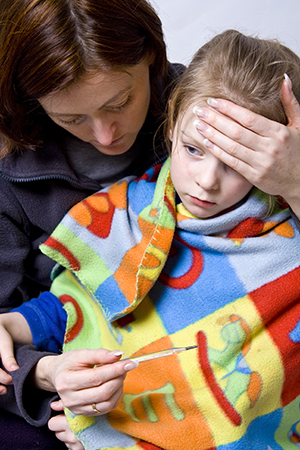 Hospitalizations for severe respiratory infections in children are climbing at some U.S. hospitals because of confirmed cases by the Centers for Disease Control and Prevention (CDC) of human enterovirus D68, or EV-D68. As yet, Lane County has no confirmed cases.
Hospitalizations for severe respiratory infections in children are climbing at some U.S. hospitals because of confirmed cases by the Centers for Disease Control and Prevention (CDC) of human enterovirus D68, or EV-D68. As yet, Lane County has no confirmed cases.
There are more than 100 types of enterovirus infections, with 10 to 15 million cases every year. EV-D68, however, is less common. Small clusters of EV-D68 were reported in the United States in 2009 and 2010.
Last month, hospital officials in Kansas City, Missouri, and Chicago contacted the CDC after finding higher than usual numbers of admissions due to respiratory infections. The CDC then confirmed 19 of 22 specimens from Kansas City hospitals and 11 of 14 specimens from Chicago were EV-D68. The strain is not new.
The CDC continues to investigate possible clusters around the country, and testing is ongoing, said Anne Schuchat, M.D., director of the CDC National Center for Immunization and Respiratory Diseases, in a CDC telebriefing held yesterday.
Who’s affected and how?
Children from six weeks to 16 years, and with a median age of 5 years, have been most affected by the current outbreak, especially those with a history of asthma or wheezing. Some children have been admitted to intensive care units. At Children’s Mercy Hospital in Kansas City, for example, officials called in extra providers to help care for an unprecedented influx of children needing intensive care.
The onset of symptoms can be quick. Within hours, typical cold systems have turned into breathing difficulties, sometimes accompanied by wheezing, cough, rash or fever. Some EV-D68 infection can be serious but rarely result in neurologic illness, including meningitis.
What can I do?
Your pediatricians at Eugene Pediatric Associates urge you to take the following steps:
- Remain calm. This is not a deadly virus, like Ebola. Supportive care is helping many of the sick kids in the Midwest get well.
- Keep sick children with rashes and bad coughs OUT of school and daycare.
- Call us to discuss your children’s illness if they have a bad cough, fever, body aches or shortness of breath. We can help you decide what to do next.
- Keep up your kids’ washing regimen. Enteroviruses are spread by close contact with infected persons or by touching contaminated objects. Thoroughly wash your kids’ hands and faces and change clothes when they get home after being around lots of other people.
- Be mindful about swimming pool hygiene. Enterovirus infections also can be spread by fecal–oral routes.
- If your child has asthma, make sure you have rescue inhalers that are up to date and your child gets a flu shot this month or next.
And remember: Even though this newsworthy virus isn’t prevented by a shot, please immunize your children against influenza, which kills more people every year than all vaccine-preventable diseases put together! FLU SHOTS SAVE LIVES.
